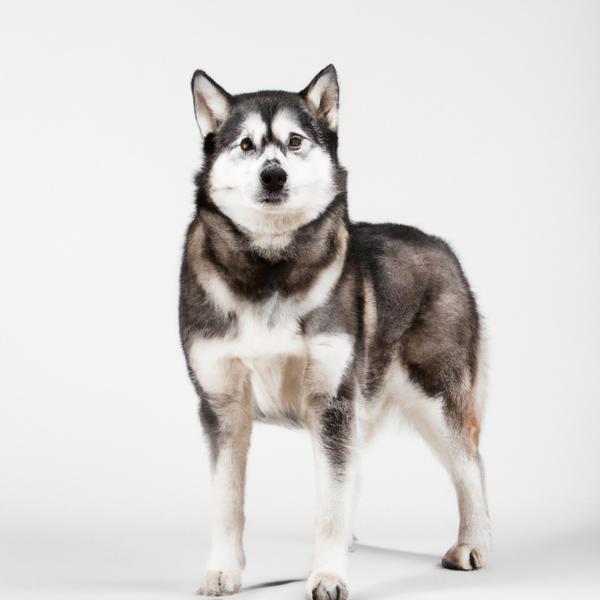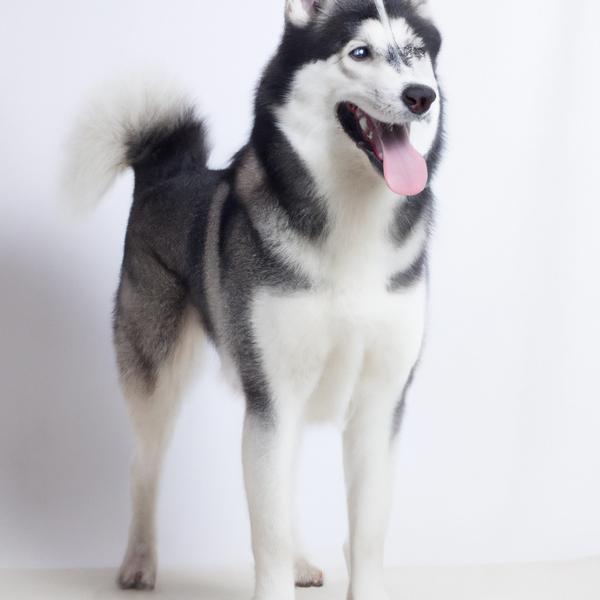Huskita vs. Husker: Breed Differences and Similarities
Hypoallergenic
Are Huskitas or Huskers hypoallergenic, or neither?
Unfortunately, neither Huskita nor Husker are hypoallergenic, which may not make them the best choice for dog lovers who suffer from pet allergies.
Temperament
What are the personalities of Huskita and Husker dogs?
Dignified
Independent
Protective
Alert
Courageous
Intelligent
Friendly
Outgoing
Responsive
Docile
Gentle
Faithful
Vigilant
Willing
Playful
Energetic
Alert
Intelligent
Confident
Friendly
Outgoing
Loyal
Gentle
Fearless
Brave
Bright
Shedding Level
Do Huskitas shed more than Huskers, or which breed sheds more, Huskitas or Huskers?
Huskitas shed a lot of hair each year, so frequent brushing is essential for reducing shedding and maintaining coat health.
Huskers are heavy shedders, but regular brushing can help manage shedding and promote a healthy coat.
Ancestry
What are the origins of Huskita and Husker breeds?
Akita, Siberian Husky
Siberian Husky and Boxer
Date of Birth
When were Huskita and Husker breeds first developed?
1990s
Unknown
Eye Color Possibilites
What are the eye colors of Huskita and Husker dogs?
Brown
Blue
Brown
Nose Color Possibilites
What are the natural nose colors of Huskita and Husker?
Black
Black
Coat Color Possibilites
What are the natural colors of the coat for Huskita and Husker breeds?
White
Black
Gray
Red
Sable
Brown
Fawn
Silver
Black
Gray
White
Brown
Fawn
Coat Length
What is the typical coat length for Huskita and Husker breeds?
The coat of Huskita and Husker dogs falls in the medium-length category.
Coat Density
What is the density of the coat of Huskita and Husker?
Coat Texture
What is the hair texture of Huskita and Husker?
Straight
Litter Size
What is the usual litter size for Huskita and Husker?
A Huskita can have a litter of 3-12 puppies on average. However, it's worth noting that the size of the litters can vary greatly. Factors that can influence litter size include the health of the mother, breeding history, and genetics.
A Husker can have a litter of 2-10 puppies on average. However, it's worth noting that the size of the litters can vary greatly. Factors that can influence litter size include the health of the mother, breeding history, and genetics.
Adaptability
Huskita and Huskers are known for their adaptability and versatility. They are capable of adapting well to a wide range of lifestyle changes and living environments, making them great companions for families and individuals of all lifestyles.
Health Issues
Between Huskita and Husker, which breed is more prone to health problems?
Huskita and Husker breeds are generally considered to be healthy. However, like all breeds, they are susceptible to certain health issues and it is important to keep an eye out for them and address them with your veterinarian as needed.
Major Concerns
What are the major health concerns for Huskita and Husker breeds?
Hip Dysplasia
Epilepsy
Bloat
Hemophilia
Laryngeal Paralysis
Autoimmune Thyroiditis
Progressive Retinal Atrophy (PRA)
vonWillebrand’s Disease
Hip Dysplasia
Minor Concerns
What minor health issues should be kept in mind when owning Huskita and Husker?
Elbow Dysplasia
Pemphigus
Sebaceous Adenitis
Zinc Responsive Dermatosis
Cancer
Corneal Dystrophy
Canine Glaucoma
Occasional Tests
What occasional tests are recommended for Huskita and Husker breeds?
X-Rays
Blood Tests
Internal Imaging (x-ray, CT scan, MRI, etc.)
Buccal Mucosal Screening
Physical and Neurologic Examination
Skin Scrapings and Biopsies
Orthopedic Exam
Ocular Exam
Abdomen and Blood Tests
Throat Exam
Coagulation Analysis
X-Rays
Eye Examination
Physical Examination
Blood Tests
Social Needs
Huskita vs Husker social needs comparison
Huskita has average social needs and is less independent than other breeds.
Husker has above average social needs and thrives with interaction with humans and other dogs.
Sleeping Need
Which of the two sleeps the most/least: Huskita or Husker?
Huskitas sleep less than other breeds but still need adequate sleep for good health.
Huskers are active and require sufficient sleep to stay healthy.
Mouthiness
Mouthiness Comparison: Huskita vs Husker?
Roaming urge
Huskita vs Labrador: Running away tendency?
Prey Drive
Huskita or Husker - which breed has a higher level of prey drive?
Activity Level
Which breed has higher energy, Huskitas or Huskers?
Huskita and Husker are high-energy dogs that require a lot of mental and physical exercise. Without proper stimulation and attention, these breeds can become problematic. If you're considering these breeds, be prepared to invest time and effort in their exercise and training.
Tolerance of being left alone
Walks per Week
How many miles should Huskita or Husker walk each week?
There's really no limit to how far you walk your dog as long as they're comfortable. For Huskita, it's at least 14 miles / week. Just remember to build distance and stamina gradually over time.
There's really no limit to how far you walk your dog as long as they're comfortable. For Husker, it's at least 15 miles / week. Just remember to build distance and stamina gradually over time.
Activity per Day
Do Huskitas or Huskers require more exercise?
In general most Huskitas usually need at least 90 minutes of exercise daily. This can be spread across the day and include all sorts of high-energy activities, like walking, running and playing.
In general most Huskers usually need at least 70 minutes of exercise daily. This can be spread across the day and include all sorts of high-energy activities, like walking, running and playing.
Grooming
Which breed is easier to maintain in terms of grooming, Huskitas or Huskers?
The Huskita requires an average amount of grooming compared to other breeds.
The Husker has low grooming needs and is easy to maintain.
Brushing Frequency
What is the recommended brushing frequency for Huskita and Husker dogs?
Huskita should be brushed at least once a week. Of course you can give them more frequent brushes if you find that they are still shedding a lot
Ideally, Husker should be brushed at least 2 or 3 times a week (preferably daily) improve shedding.
Brushing Tools
What brushing tools are used for Huskitas and Huskers?
Pin Brush
Comb
Nail Clipper
Slicker Brush
Deshedder
Nail Clipper
Cups
How much food should be given to Huskita or Husker in cups?
For an average 60-75 pound (27 - 34 kg) Huskita feed 3 cups daily. But, keep in mind, the amount you feed is going to be dependent on the quality of the food you are feeding.
For an average 35-71 pound (16 - 32 kg) Husker feed 3.5 cups daily. But, keep in mind, the amount you feed is going to be dependent on the quality of the food you are feeding.
Daily Cost
Which breed has a higher daily cost, Huskita or Husker?
The average cost of a Huskita is somewhere $2.10 - $2.70 per day.
The average cost of a Husker is somewhere $2.10 - $2.80 per day.
Monthly Cost
Which breed has a higher monthly cost, Huskita or Husker?
The average per month expenses of a Huskita is between $55 - $73. This makes an average of $660 - $876 per year. It will be on the higher side when the dog is still small because it will need more frequent visits to the vet, shots.
The average per month expenses of a Husker is between $63 - $84. This makes an average of $756 - $1008 per year. It will be on the higher side when the dog is still small because it will need more frequent visits to the vet, shots.
Sensitivity Level
How do Huskita and Husker compare in sensitivity?
This breed is sensitive to its environment and best suited for patient and understanding families with a consistent routine.
This breed is sensitive and requires gentle handling and a calm home environment.
Apartment Friendly
Which breed is more apartment-friendly: Huskita or Husker?
The Huskita is a great apartment dog, thriving with sufficient exercise and time outside as part of their daily routine.
Huskers are good apartment dogs as long as they get enough exercise and stimulation outside of the apartment.
Child Friendly
Do Huskitas or Huskers have a friendlier temperament towards children?
Huskita and Husker are kid-friendly dogs. They are good with children and excellent dogs with children if they are socialized and trained at a young age.
Senior-friendly
Which dog is more suitable as a pet for the elderly - Huskita or Husker?
Cat Friendly
Do Huskita or Husker breeds have a better compatibility with cats?
Huskitas and Huskers are below average friendly toward cats. But with the right training and socialization, they can be good with cats,
Dog Friendly
Which breed is more sociable with other dogs: Huskita or Husker?
Huskitas and Huskers are friendly, active and loyal companions. They generally love to be around other dogs, making them a good family pet for some.
Pet friendly
How do Huskita or Husker dogs interact with other pets?
Stranger Friendly
Which breed is more friendly with strangers: Huskita or Husker?
Huskita and Husker are average friendly around strangers. They can be wary around strangers and a little standoffish, so early socialization is key to ensure they are comfortable around new people.
Playfulness
Which breed is more playful between Huskita and Husker?
Huskita and Husker are playful dogs. So, no matter how busy the day may get, the best thing you can do for Huskita and Husker is to make time each day to play. It can be as little as 15-20 minutes, and it will mean the world to them.
Trainability
How do the trainability levels of Huskitas and Huskers compare?
Huskitas are usually easy to train but require consistency to fully obey commands.
Huskers may require more time and patience to learn commands, but with consistency, they can be trained.
Compare Huskita with other breeds
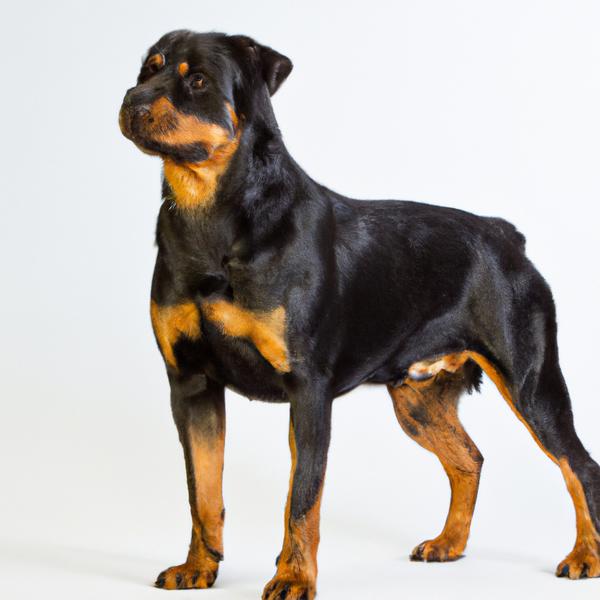
Rotterman
Huskita vs Rotterman
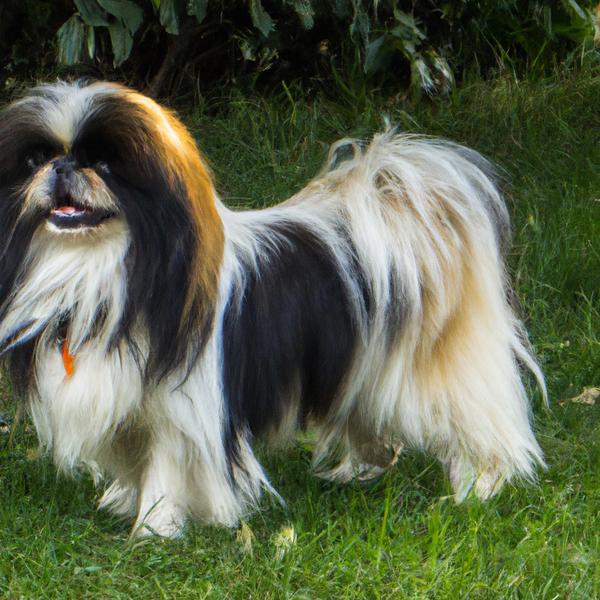
Tibetan Chin
Huskita vs Tibetan Chin
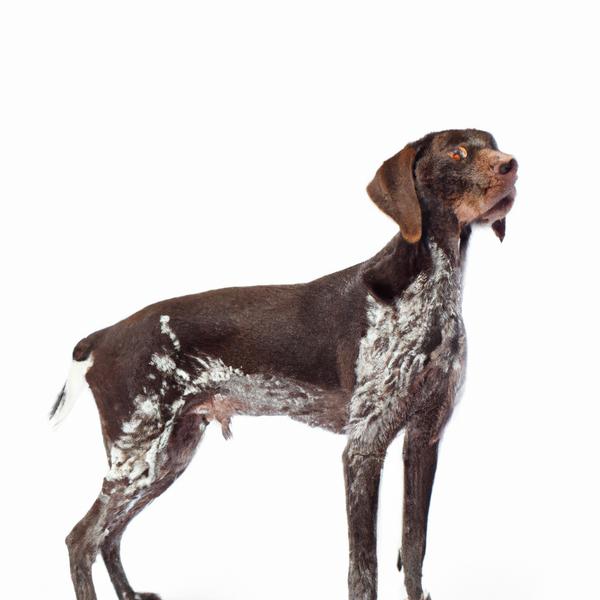
German Shorthaired Sprointer
Huskita vs German Shorthaired Sprointer
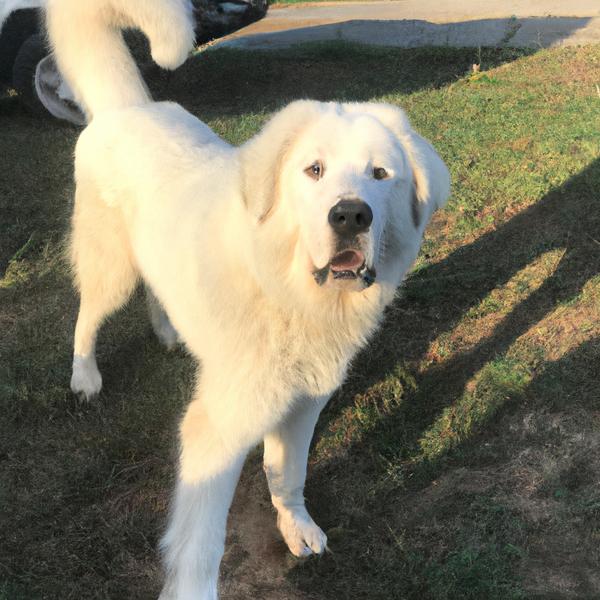
Great Pyrenees
Huskita vs Great Pyrenees
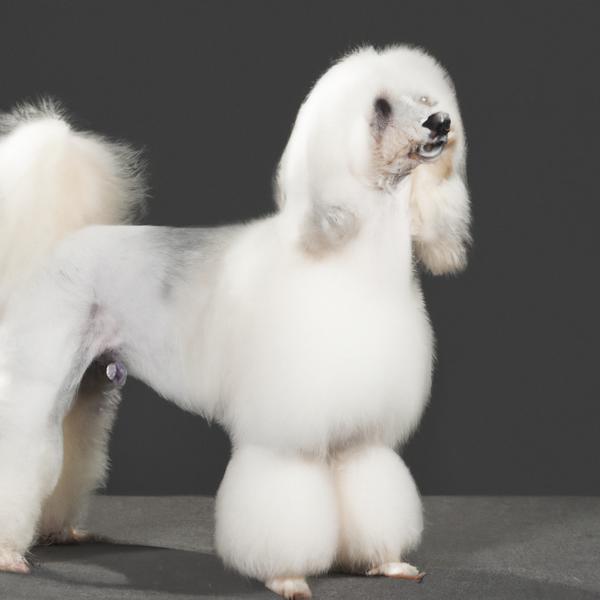
Corillon
Huskita vs Corillon
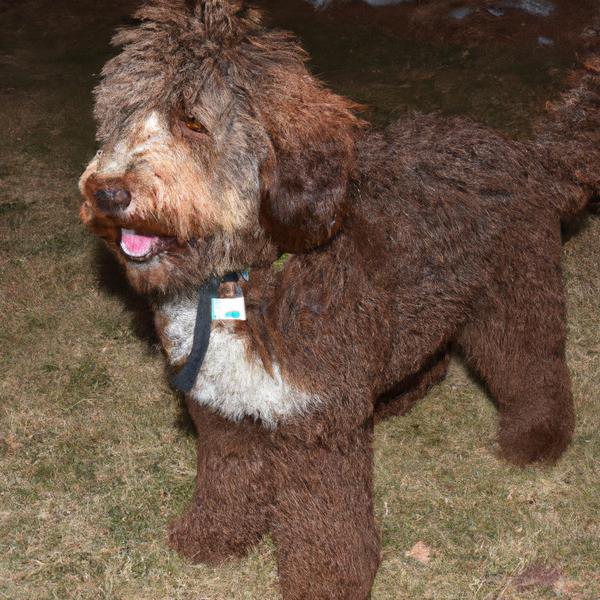
Tervoodle
Huskita vs Tervoodle
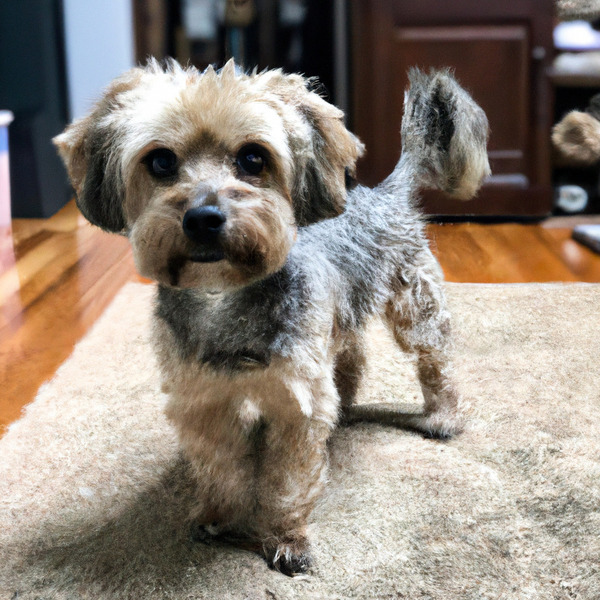
Yorkipoo
Huskita vs Yorkipoo
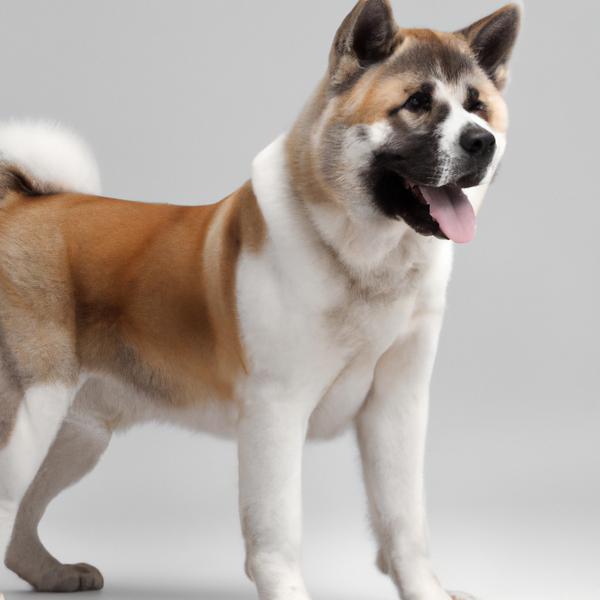
Akita Shepherd
Huskita vs Akita Shepherd
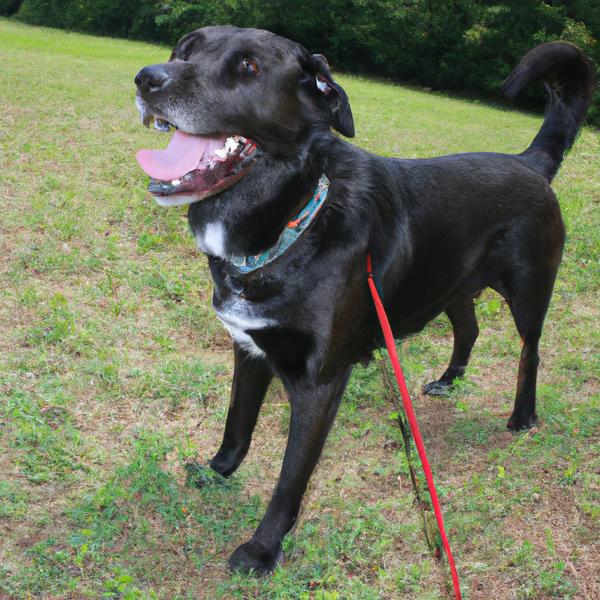
Labrottie
Huskita vs Labrottie
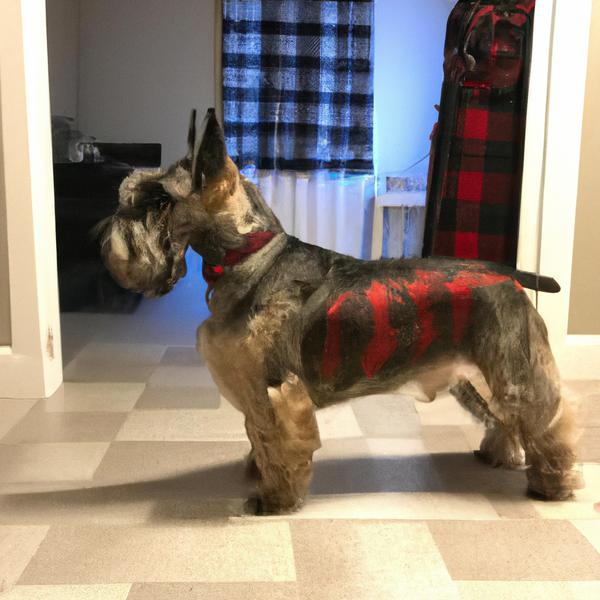
Scotchi
Huskita vs Scotchi
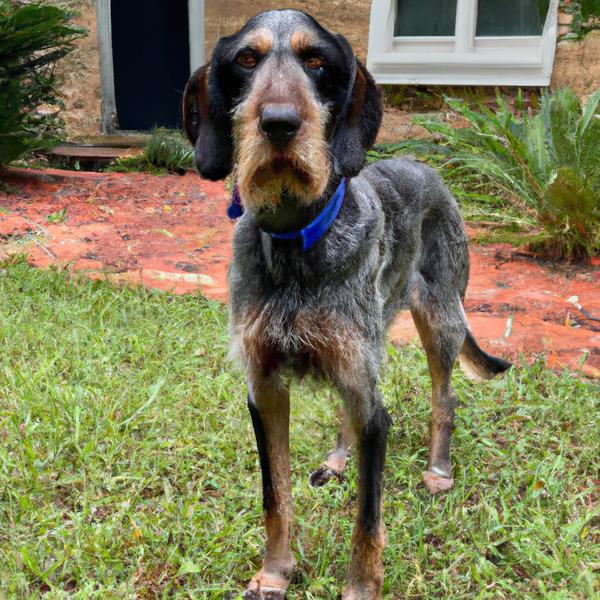
Bluetick Coonoodle
Huskita vs Bluetick Coonoodle
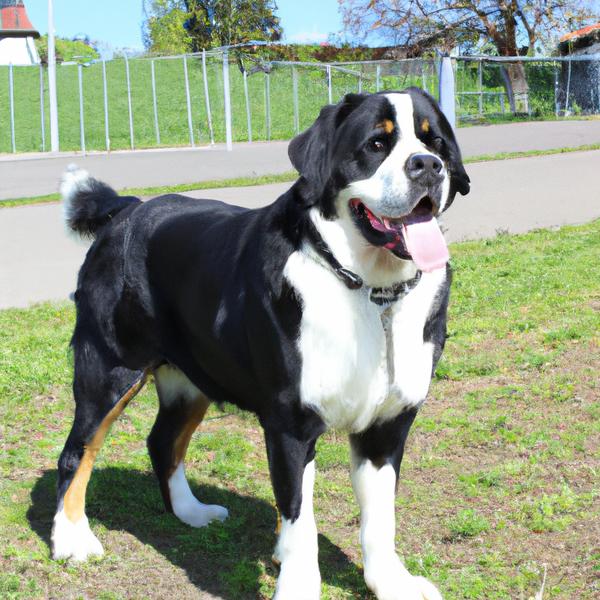
Swissy Saint
Huskita vs Swissy Saint
